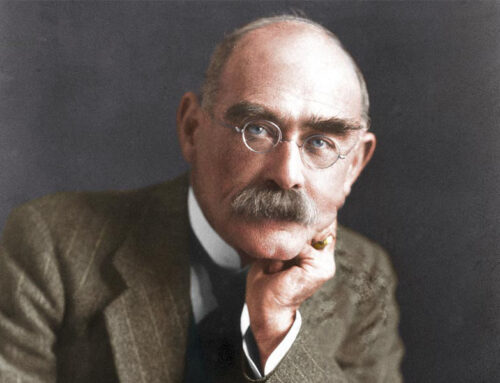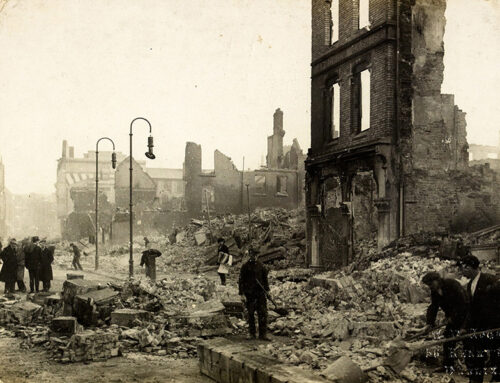

“But he that sinneth against me wrongeth his own soul: all they that hate me love death.” —Proverbs 8:36
Decian Persecution of the Church Begins, January 3, AD 250
![]() n the middle of the third century Anno Domini, Decius, a former senator, consul, governor, and now general, from the province of Illyricum in the Roman Empire, an area today within the borders of Serbia, fought and defeated an army of Balkan rebels led by one Pacatianus. The army of Decius then proclaimed Decius Emperor of Rome in response to his successes on the field of battle. When the true emperor led an army against him, Decius defeated and killed him, popularly known as Phillip the Arab, at the Battle of Verona in September of AD 249. Probably to solidify his takeover, as well as perhaps a jealousy of the increase of Christians, Decius decreed to all provincial governors that everyone in the Empire make sacrifices and burn incense to the gods of Rome, as an act of obedience, piety and worship. Christians were split on the issue of going along with the civil decree.
n the middle of the third century Anno Domini, Decius, a former senator, consul, governor, and now general, from the province of Illyricum in the Roman Empire, an area today within the borders of Serbia, fought and defeated an army of Balkan rebels led by one Pacatianus. The army of Decius then proclaimed Decius Emperor of Rome in response to his successes on the field of battle. When the true emperor led an army against him, Decius defeated and killed him, popularly known as Phillip the Arab, at the Battle of Verona in September of AD 249. Probably to solidify his takeover, as well as perhaps a jealousy of the increase of Christians, Decius decreed to all provincial governors that everyone in the Empire make sacrifices and burn incense to the gods of Rome, as an act of obedience, piety and worship. Christians were split on the issue of going along with the civil decree.
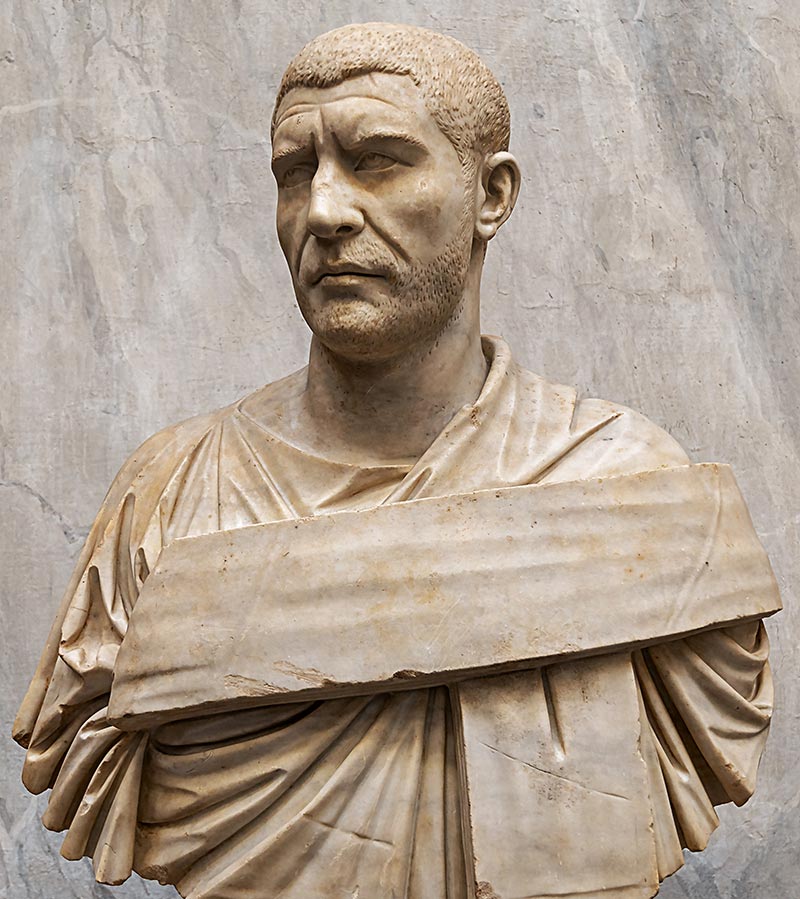
Philip the Arab (c. AD 204-249) Emperor of Rome (AD 244-249)
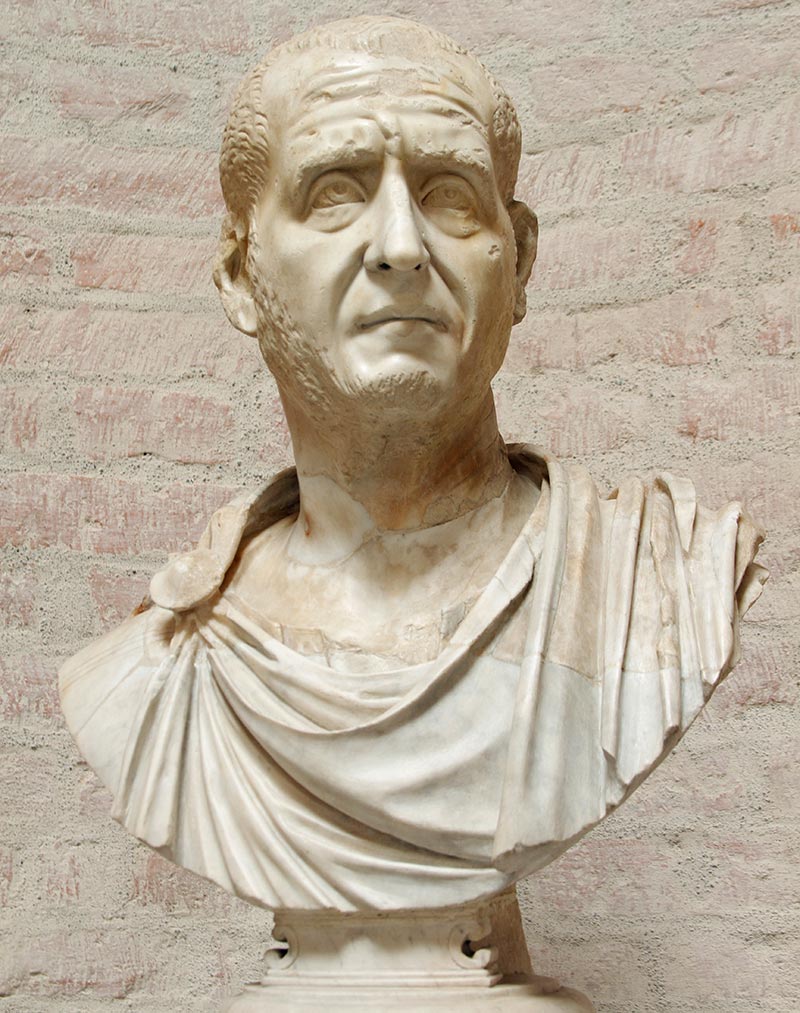
Trajan Decius (c. AD 201-251) Emperor of Rome AD 249-251
Protestant historian John Foxe in his famous Book of Martyrs, first published in 1563, noted that the Decian persecution was the seventh one by the Roman emperors. Church historian Philip Schaff described Decius as “an earnest and energetic emperor, in whom the old Roman spirit once more awoke, resolved to root out the Church as an atheistic and seditious sect.” This persecution, however, exceeded all previous ones since the edict covered the entire Empire. Former persecutions had often been provincial or just local; this one produced more Christian martyrs than all previous decrees and attacks, for “extent, consistency, and cruelty exceeded all before it.” The Emperor set a date for compliance: sacrifice to the gods and receive a certificate of obedience.
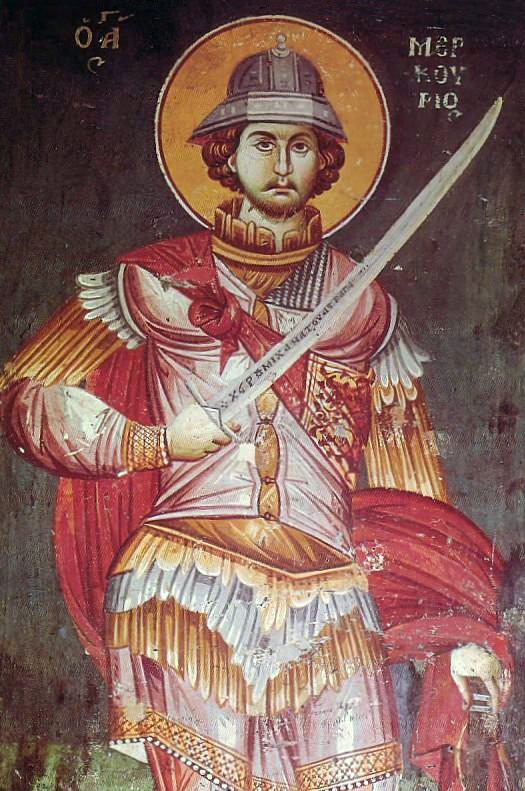
Saint Mercurius (d. AD 250), a Christian victim of the Decian persecution
Cyprian of Carthage wrote that many nominal Christians sacrificed to the gods of the State (sacrificati) or procured, illegally from a magistrate, a document (libellatici) stating that they had complied with the government orders. Many thousands of Christians fled to safer areas or simply refused the State’s demand to sacrifice to the Roman gods. Compromisers (lapsi) were often excommunicated. One of those who confessed Christ alone and refused to worship the State wrote to Cyprian, “what more glorious and blessed lot can fall to man by the grace of God, than to confess God the Lord amidst tortures and in the face of death itself; to confess Christ the Son of God with lacerated body and with a spirit departing, yet free; and to become fellow sufferers with Christ in the name of Christ?”
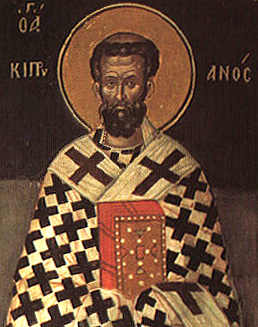
Cyprian, Bishop of Carthage (c. AD 200-258)
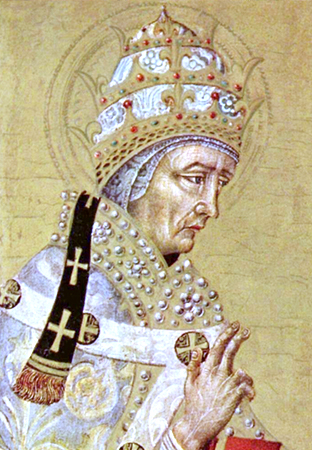
Fabian, Bishop of Rome (martyred January 20, AD 250)
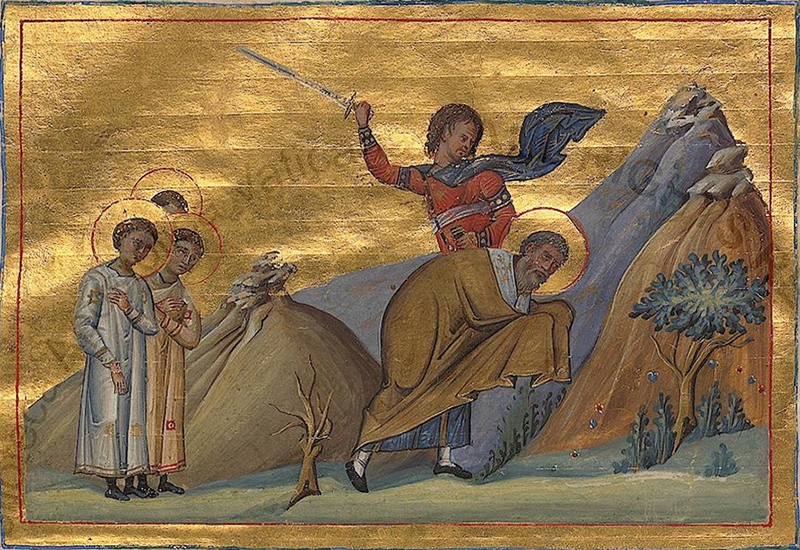
Babylas, Bishop of Antioch (martyred AD 253)

Alexander, Bishop of Jerusalem (martyred AD 251)
The Romans martyred the bishops of Rome, Antioch, and Jerusalem. Other pastors hid out and the persecutors turned on their flocks for slaughter. Cyprian concealed himself for a time, but was seized and put on trial seven years later, and when accused of being an enemy of Roman gods and laws, replied “Deo Gratias.” He was executed with a sword.
At the same time as the persecution of the Church came a plague which killed up to five thousand Romans per day. Some people called it Cyprian’s plague and redoubled their efforts to punish Christians. Decius also faced new barbarian invasions, especially the Goths. He assembled his army and moved north to drive them away. In the course of campaign, he was killed in battle, the first Roman emperor to go to his eternal reward fighting enemies of Rome, having served as emperor for only two years. The persecution of Christians continued regardless of the political power brokers of the next two imperial administrations.
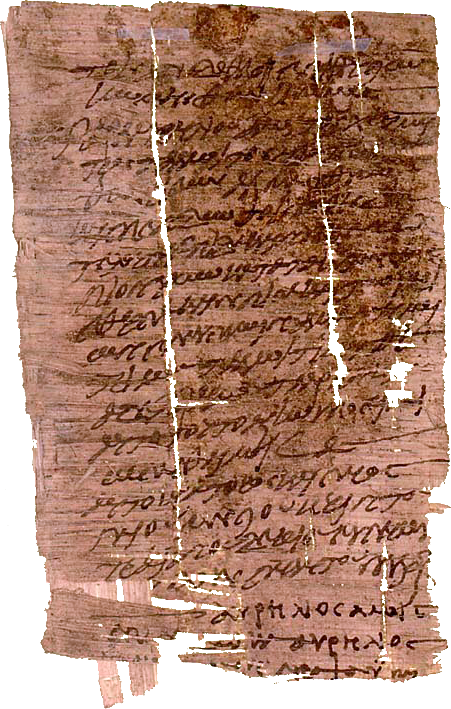
A Libellus papyrus discovered in Egypt dated AD 250 certifying that the bearer has sacrificed to the gods
The pagan emperors of Rome worshipped the State and its power. Christians believed that Jesus was Lord and the only one to be worshipped. When the State demanded worship or set the rules for worship in opposition to the Holy Scriptures, professing Christians were faced with choices that always had consequences. Some bent to the will of the civil authorities and kept their head out of the noose, at least for a while. Others defied the tyranny over the church and faced fines, arrest, torture and sometimes martyrdom. Within two hundred years, the Roman emperors were professing Christians, and the Church had grown exponentially under persecution. That seems to be a recurring pattern. Someday, the persecution will stop and all the enemies of Christ will be gone. Of His Kingdom there shall be no end.
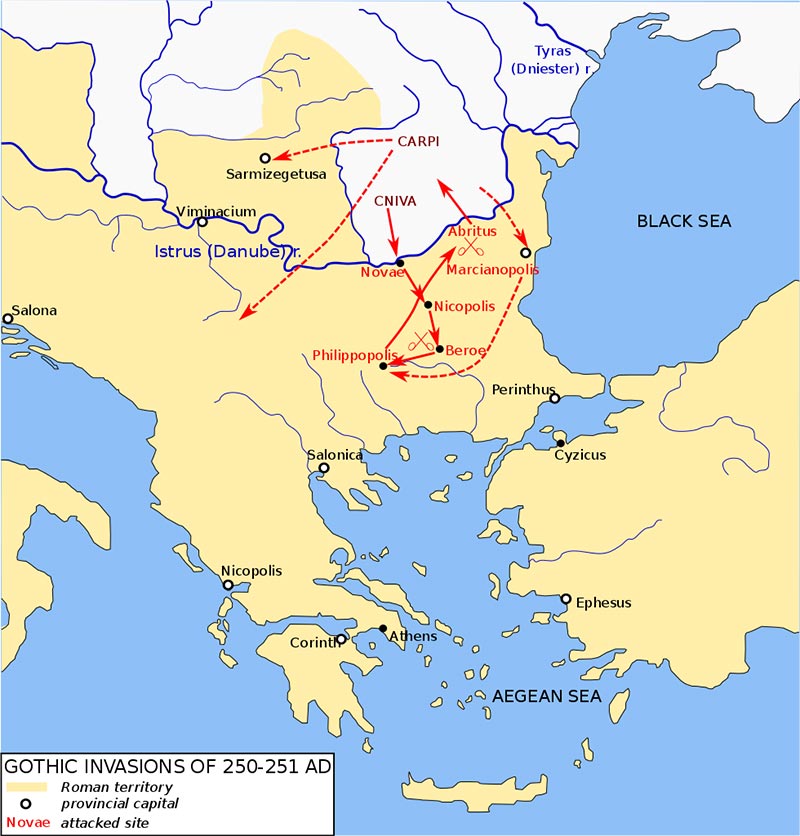
Map showing the Gothic invasions of AD 250-251
Image Credits: 1 Philip the Arab (Wikipedia.org) 2 Trajan Decius (Wikipedia.org) 3 Saint Mercurius (Wikipedia.org) 4 Cyprian (Wikipedia.org) 5 Fabian, Bishop of Rome (Wikipedia.org) 6 Babylas, Bishop of Antioch (Wikipedia.org) 7 Alexander, Bishop of Jerusalem (Wikipedia.org) 8 Libellus (Wikipedia.org) 9 Gothic invasion (Wikipedia.org)


